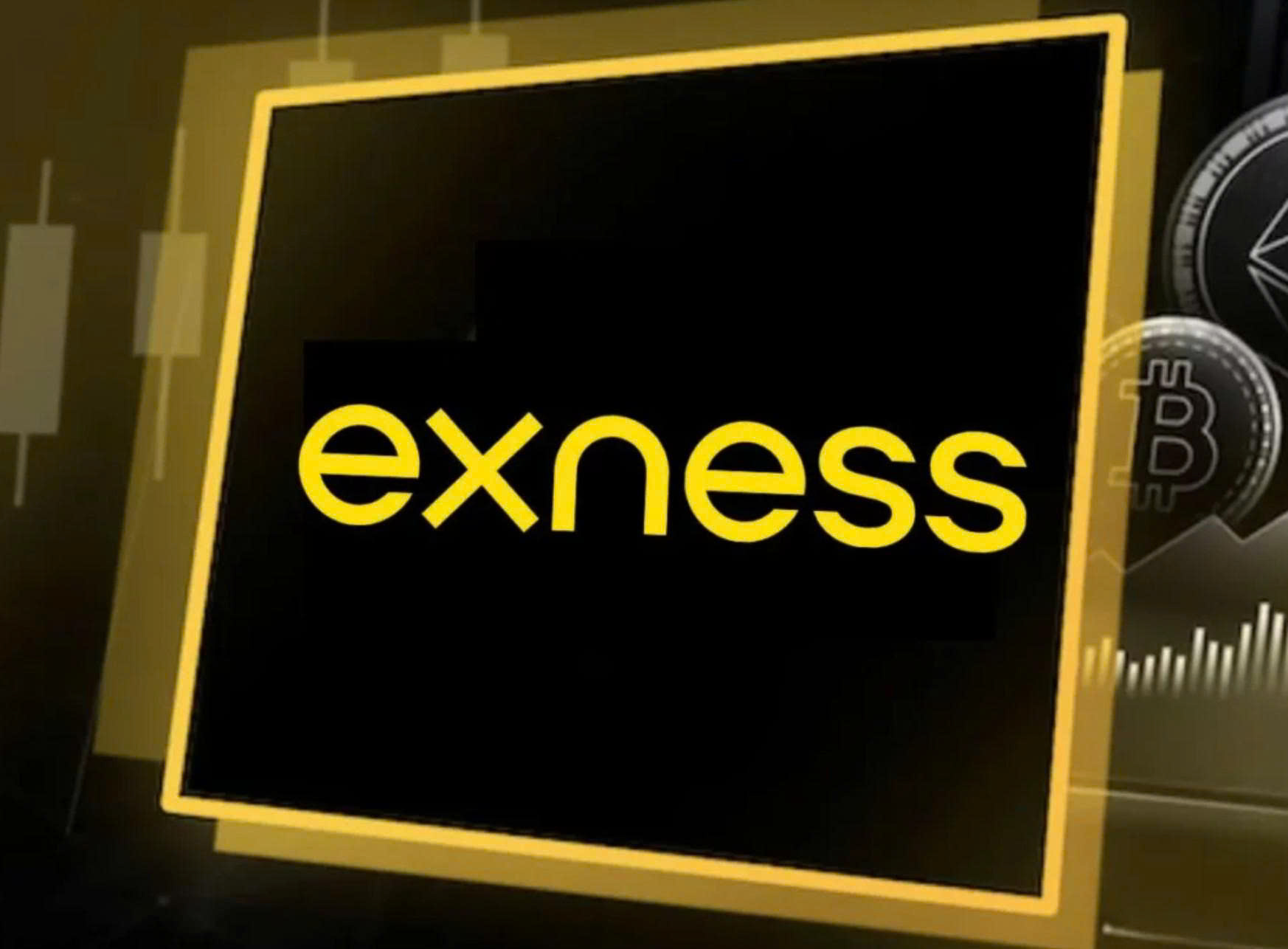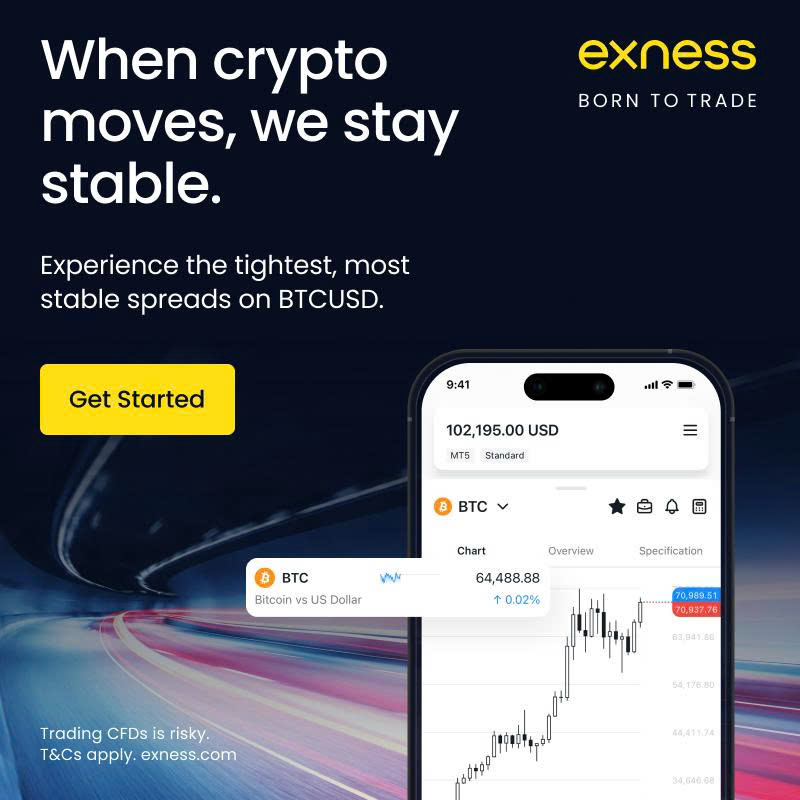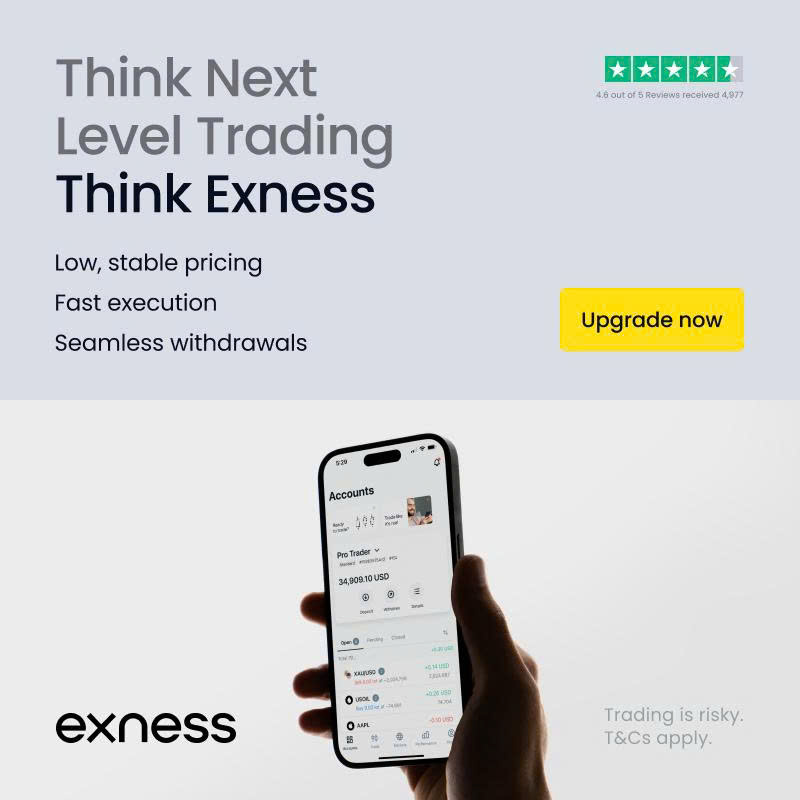
8 minute read
Is Exness Illegal in India? A Comprehensive Guide for Traders
The forex trading landscape in India has exploded in popularity, with platforms like Exness drawing significant attention for their competitive spreads, high leverage, and user-friendly interfaces. However, one question looms large for Indian traders: Is Exness illegal in India? The answer isn’t a simple yes or no—it’s nuanced, tied to India’s complex regulatory framework, and depends on how traders use the platform. In this in-depth guide, we’ll explore Exness’s legal status, India’s forex trading regulations, and practical steps for Indian traders to trade responsibly and stay compliant.

✅ Join Exness now! Open An Account or Visit Brokers 👈
What is Exness, and Why is it Popular in India?
Founded in 2008, Exness is a globally recognized forex and CFD broker headquartered in Cyprus, serving millions of clients across over 190 countries. It offers a wide range of trading instruments, including forex pairs, commodities, cryptocurrencies, and indices, accessible via platforms like MetaTrader 4 (MT4) and MetaTrader 5 (MT5). Exness has gained traction in India due to its:
Competitive Spreads: Tight spreads, including zero-spread accounts, make trading cost-effective.
High Leverage: Options for leverage up to 1:2000, appealing to high-risk traders.
User-Friendly Platforms: Intuitive mobile apps and desktop platforms cater to both beginners and professionals.
Fast Withdrawals: Instant withdrawal systems via e-wallets, crypto, and other methods.
Educational Resources: Webinars, tutorials, and articles to support trader education.
Despite these advantages, the question of Exness’s legality in India persists due to the country’s strict financial regulations. Let’s dive into the regulatory landscape to understand whether trading with Exness is legal or not.
India’s Forex Trading Regulations: The Basics
Forex trading in India is governed by a robust framework designed to protect the economy and retail investors. The two primary regulatory bodies are:
Reserve Bank of India (RBI): The RBI oversees foreign exchange transactions under the Foreign Exchange Management Act (FEMA), 1999. FEMA restricts forex trading to INR-based currency pairs (e.g., USD/INR, EUR/INR, GBP/INR, JPY/INR) and prohibits speculative trading in non-INR pairs like EUR/USD.
Securities and Exchange Board of India (SEBI): SEBI regulates securities and commodities markets, including forex trading on recognized exchanges like the National Stock Exchange (NSE) and Bombay Stock Exchange (BSE). Only SEBI-registered brokers can legally offer forex trading services in India.
Additionally, brokers operating in India must comply with Know Your Customer (KYC) and Anti-Money Laundering (AML) policies to ensure transparency and prevent illegal activities. These regulations create a complex environment for international brokers like Exness, which operates outside India’s jurisdiction.
Is Exness Regulated in India?
Exness is not registered with SEBI or the RBI, which raises concerns about its legality for Indian traders. However, it holds licenses from several reputable international regulators, including:
Financial Conduct Authority (FCA) in the UK
Cyprus Securities and Exchange Commission (CySEC)
Financial Sector Conduct Authority (FSCA) in South Africa
Financial Services Authority (FSA) in Seychelles
Financial Services Commission (FSC) in Mauritius and the British Virgin Islands
These licenses ensure that Exness adheres to global standards for transparency, client fund protection (via segregated accounts), and fair trading practices. However, the absence of SEBI or RBI registration places Exness in a legal gray area in India. It’s not explicitly banned, but its lack of local oversight means Indian traders must exercise caution to stay compliant with FEMA and RBI guidelines.
Is Exness Illegal in India? The Definitive Answer
The legality of Exness in India depends on how traders use the platform. Here’s a clear breakdown:
Legal Usage: Indian traders can legally use Exness to trade INR-based currency pairs (e.g., USD/INR, EUR/INR) while adhering to FEMA guidelines. This includes using RBI-approved payment methods like UPI, bank transfers, or Indian cards and declaring profits for taxation under Indian income tax laws.
Illegal Usage: Trading non-INR currency pairs (e.g., EUR/USD, GBP/USD) or using unregulated payment methods (e.g., crypto wallets or international e-wallets) to fund Exness accounts may violate FEMA regulations. Such actions could expose traders to legal penalties, including fines or banking scrutiny.
As of 2025, Exness does not appear on the RBI’s Alert List, which names entities unauthorized to conduct forex transactions in India. This suggests that Exness is not explicitly banned. However, the RBI cautions that absence from the list doesn’t imply authorization, and traders must independently verify compliance with Indian laws.
In short, Exness itself is not illegal in India, but traders must strictly adhere to FEMA guidelines to avoid legal complications. Compliance is key to ensuring safe and lawful trading.

✅ Join Exness now! Open An Account or Visit Brokers 👈
Risks of Trading with Exness in India
While Exness is a globally trusted broker, using an unregulated offshore platform in India carries certain risks:
No Local Legal Protection: Since Exness isn’t governed by SEBI or RBI, Indian traders may lack recourse in case of disputes, fraud, or financial losses. You’d need to rely on Exness’s international regulators, which may not prioritize Indian clients.
FEMA Violations: Trading non-INR pairs or using unapproved payment methods could lead to penalties under FEMA, ranging from fines to imprisonment in severe cases.
Banking Scrutiny: Indian banks may flag or freeze accounts linked to transactions with offshore brokers, especially if funds are transferred via unregulated channels.
Misinformation: Online forums and social media often spread outdated or inaccurate claims about Exness’s status, adding to confusion. Always rely on official RBI and SEBI statements for clarity.
Recent posts on X have highlighted concerns about Exness’s operations in India, with some users claiming the platform removed UPI and bank deposit options without warning, citing “internal policy.” These claims remain unverified, but they underscore the need for transparency and caution when using offshore brokers.
How to Trade Legally with Exness in India
To use Exness responsibly and stay within Indian laws, follow these steps:
Stick to INR-Based Pairs: Focus on trading USD/INR, EUR/INR, GBP/INR, or JPY/INR to comply with FEMA regulations.
Use Approved Payment Methods: Fund your Exness account using RBI-approved methods like UPI, bank transfers, or Indian debit/credit cards. Avoid unregulated channels like crypto wallets or international e-wallets.
Declare Profits for Taxation: Forex trading profits are taxable under Indian income tax laws. Exness provides transaction records to simplify reporting—use them to stay compliant.
Verify Platform Authenticity: Only trade via Exness’s official website exness.com or app downloaded from the Google Play Store or Apple App Store. Beware of fake platforms or apps posing as Exness.
Consult a Financial Advisor: Before trading, seek advice from a financial or legal expert to ensure your activities align with Indian regulations.
By following these steps, Indian traders can leverage Exness’s features while minimizing legal risks.
Alternatives to Exness for Indian Traders
If Exness’s gray-area status concerns you, consider SEBI-registered or RBI-authorized alternatives:
Zerodha: Offers forex trading through NSE’s currency derivatives segment, ensuring full compliance with Indian laws.
Upstox: Another SEBI-regulated platform with access to INR-based currency pairs.
ICICI or HDFC Bank: These banks provide forex trading services for INR pairs, backed by RBI authorization.
Regulated Offshore Brokers: Platforms like Pepperstone or XM may offer clearer compliance pathways, though they also lack SEBI registration.
Each option has trade-offs: local brokers provide regulatory safety but limited features, while offshore brokers offer flexibility at the cost of legal clarity.
Why Indian Traders Still Choose Exness
Despite its unregulated status in India, Exness remains popular due to:
Access to Global Markets: Traders can explore a wide range of instruments beyond INR pairs (though non-INR trading is risky and potentially illegal).
Advanced Trading Tools: Features like real-time market data, advanced charting, and fast execution appeal to both beginners and professionals.
High Leverage and Low Costs: Exness’s competitive spreads and high leverage options attract risk-tolerant traders.
Community Trust: Many Indian traders report positive experiences with Exness’s platform, citing reliable withdrawals and customer support.
However, popularity doesn’t equate to legality. Traders must prioritize compliance over convenience to avoid potential issues.
The Future of Exness in India
As forex trading grows in India, the regulatory landscape may evolve. The RBI has signaled plans to tighten controls on illegal forex platforms, as seen in its 2023 expansion of the Alert List to 75 entities. While Exness hasn’t been targeted, increased scrutiny of offshore brokers could impact its accessibility in the future.
For now, Indian traders can use Exness legally by adhering to FEMA guidelines, but staying informed about regulatory changes is crucial. Regularly check RBI and SEBI announcements for updates on forex trading rules.
Final Verdict: Is Exness Safe and Legal for Indian Traders?
Exness is a legitimate and globally regulated forex broker, but its lack of SEBI or RBI registration places it in a legal gray area in India. It’s not illegal to use Exness, provided traders focus on INR-based currency pairs, use approved payment methods, and declare profits for taxation. However, trading non-INR pairs or using unregulated funding methods could violate FEMA, exposing traders to legal and financial risks.
To trade safely with Exness in India:
Stick to INR pairs like USD/INR or EUR/INR.
Use RBI-approved payment methods.
Verify the platform’s authenticity to avoid scams.
Consult a financial advisor to ensure compliance.
By approaching Exness with caution and diligence, Indian traders can leverage its benefits while staying on the right side of the law. For those seeking maximum security, SEBI-registered brokers like Zerodha or Upstox may be safer alternatives.
✅ Join Exness now! Open An Account or Visit Brokers 👈
Read more:

